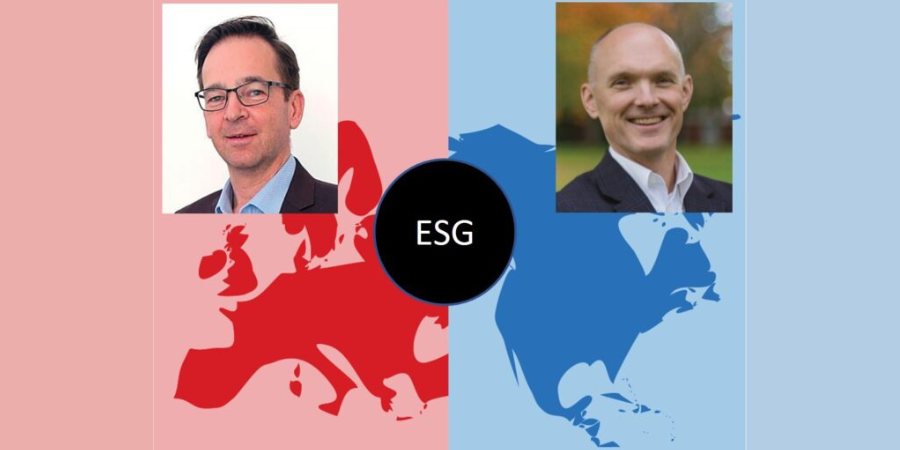
Changes are inevitable, but the world today is changing so rapidly that it’s constantly keeping us on our toes. Do two men from different parts of the world, both with significant experience within the heat treating community, have vastly different perspectives on the happenings in the heat treat industry?
We want to find out, so we asked a question that focuses on the world of heat treating to Thomas Schneidewind, the editor-in-chief of heat processing magazine, and Doug Glenn, the publisher and founder of Heat Treat Today. The question: How does government policy regarding ESG in the U.S. and nuclear power initiatives in Europe impact in-house heat treaters?
Thomas’s expertise lies in the European market while Doug’s resides in the North American market. We will feature their responses in each print magazine. Will their views align? Time will tell. Enjoy this fourth installment of an ongoing column. This column was first published in Heat Treat Today’s November 2022 Vacuum print edition.
How does government policy regarding ESG in the U.S. and nuclear power initiatives in Europe impact in-house heat treaters?
Thomas Schneidewind, Editor-in-Chief, heat processing magazine

Editor-in-Chief
heat processing Magazine
The energy crisis paralyzes Europe. The European Union has been arguing for a long time about which energy is green. Finally, the European Commission classified both nuclear energy and gas-fired power plants as green energy production. This was a compromise between France and Germany in the discussion about the taxonomy that regulates in which energy sources investments should be made. Today, environmental associations are suing against this compromise, considering neither nuclear energy nor gas-fired power plants to be green energy.

However, the discussion is long outdated. The Russian war of aggression on Ukraine has changed energy policy. Many nuclear power plants in France are at a standstill. Germany no longer receives gas from Russia, and the sabotage of the Nord Stream 1 and 2 pipelines is a politically motivated attack on the European energy market. Today, Europe is suffering from a major energy crisis. There has never been such a crisis in the energy sector in Europe since the Second World War. There is too little energy on the European market. At the moment, the focus is on security of supply.
This crisis threatens the existence of energy-intensive companies such as heat treatment shops. The hardening industry is also coming under pressure because it cannot pay the high electricity and gas prices. Entrepreneurs must find short-term solutions to cushion the cost shock, and ensure the survival of their business -with a view to the long-term goal of decarbonization. Because in the future, process heat must be CO2 free. A clear trend in this context is the switch from gas-heated industrial furnaces to electrically heated systems, whether resistance heating or induction. Managers must face these diverse issues today and respond quickly
Experts and practitioners will be talking about sustainability, materials, processes, and innovations in heat treatment at several events this fall. For example, in October, after a two-year pandemic break, the Hardening Congress (HK) was finally held again in Cologne. Here, too, the energy crisis was a dominant topic. We are talking about the future of Europe which must compete with the U.S. Many investment decisions are being put on hold because the uncertainty in Europe is currently too large. Europe, but especially Germany, faces a new recession.
Doug Glenn, Publisher, Heat Treat Today

Publisher and Founder
Heat Treat Today
Tremendously. A distinctive mark of the U.S. is that we’ve trusted the Market – what Adam Smith called the “Invisible Hand.” We haven’t believed that economies need to be planned or managed; attempts to manage or plan an economy result in more damage than good. We’ve believed that if proper natural or biblical law guardrails are established and enforced, the economy would run itself, self-adjusting as necessary. Today, many have lost faith in the Market. Instead, we put our faith in political processes and political leaders to handle the economy. Because we’ve lost faith in the Market, questions such as the one we’re addressing today make sense to ask. Government policy should have nothing to say about the type of energy we use, the people we hire, or the ideals we hold. Nonetheless, that is NOT the world we live in, so let’s address the question.
Nuclear Power Initiatives
This is really not an initiative; it is more of a “de-initiative” – a closing down of nuclear power plants in Europe (except France) – and the incentive to do so is not economic. According to those who know, nuclear is the cheapest, most reliable form of energy, vastly less expensive than “renewables.” So, in the hands of the Market, nuclear and natural gas generation power plants would win the day. Nuclear is being abandoned for purely political reasons. The effect on heat treaters and all other consumers of electricity: higher prices for energy, either in the form of explicitly higher prices per BTU or higher taxes to incentivize more expensive “renewable” energy sources.
Environmental, Societal, and Governance
As far as ESG goes, government policies in these areas will only increase the cost of doing business.
ONE of the three categories represents an area where the government might have a right to be heard: environmental. But even there, government’s scope is vastly overplayed – that is, if you have faith in the Market! Societal and governance are recent (non-economic) constructs being forced on businesses, NOT for the benefit of the end-consumer, but for the benefit of a vocal minority who believe the world should be a certain way and are using government policies to make it so.
For in-house and commercial heat treaters, ESG pressures and government recommendations or policies will raise the cost of doing business and ultimately the cost of the final product for consumers with very little measurable benefit for anyone. For in-house and commercial heat treaters, ESG pressures and government recommendations or policies will raise the cost of doing business and ultimately the cost of the final product for consumers with very little measurable benefit for anyone.







